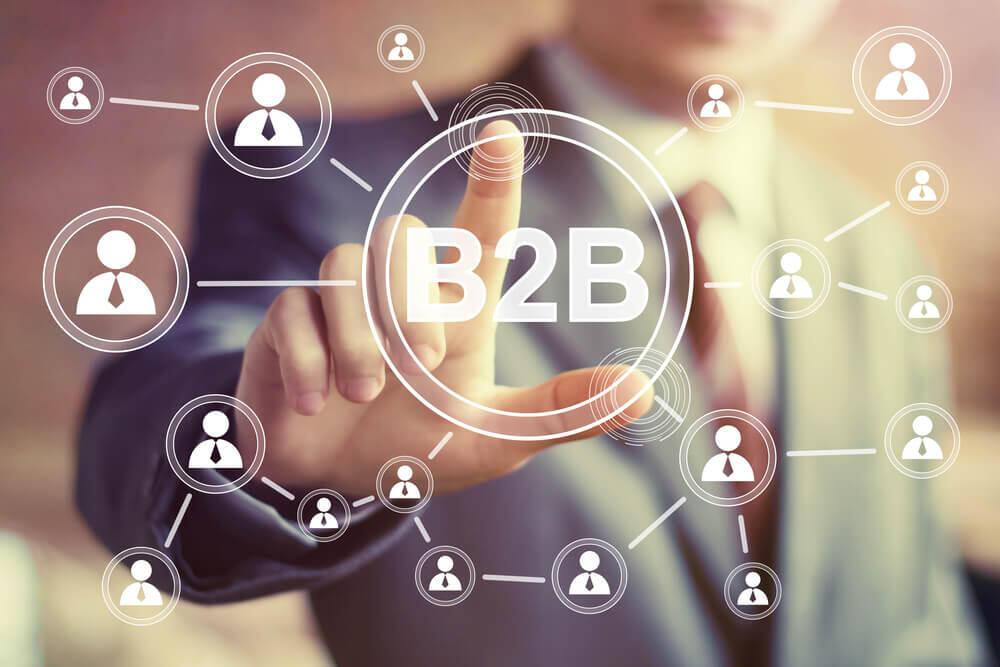In the ever-evolving landscape of business-to-business (B2B) marketing, lead generation remains a critical pillar for success. As companies strive to identify potential clients and convert them into loyal customers, they face a myriad of challenges that can hinder their efforts. From shifting buyer behaviors and increased competition to the intricacies of digital marketing, the road to effective lead generation is often fraught with obstacles. However, understanding these challenges—and employing strategic solutions—can unlock new opportunities for growth and engagement. In this article, we will explore the common pitfalls faced by B2B marketers today and provide actionable insights to help them navigate these complexities, ultimately enhancing their lead generation strategies. Whether you’re a seasoned marketer or just beginning your journey, there’s valuable information here to help you thrive in the competitive B2B landscape.
Table of Contents
- Understanding the Evolving Landscape of B2B Lead Generation
- Identifying Common Barriers and Their Solutions
- Leveraging Technology to Enhance Lead Generation Strategies
- Building Sustainable Relationships for Long-Term Success
- The Way Forward
Understanding the Evolving Landscape of B2B Lead Generation
The landscape of B2B lead generation is undergoing significant changes, influenced by technological advancements and evolving buyer behavior. Businesses are increasingly turning to digital strategies to engage prospects more effectively. Traditional methods, such as cold calls and unsolicited emails, are becoming less effective as buyers seek personalized and value-driven interactions. As a result, organizations must adapt by leveraging data analytics and automation tools to refine their targeting and outreach efforts. This shift towards technology-driven solutions allows for greater segmentation and tracking of potential leads, enabling more tailored marketing campaigns that resonate with specific audience segments.
To navigate this shifting terrain successfully, it is essential for marketers to embrace a multi-faceted approach to lead generation. Key components of this strategy include:
- Content Marketing: Elevating brand authority by providing valuable insights through blogs, eBooks, and webinars.
- Social Media Engagement: Utilizing platforms like LinkedIn to build relationships and foster conversations with potential clients.
- ABM (Account-Based Marketing): Customizing strategies for high-value accounts to maximize engagement and conversion rates.
Incorporating these elements not only enhances lead quality but also aligns marketing efforts with the specific needs of prospective customers. Companies that proactively adjust to these evolving paradigms stand to benefit from improved lead conversion rates and sustained growth in a competitive marketplace.
Identifying Common Barriers and Their Solutions
In the fast-paced world of B2B lead generation, companies often face multiple obstacles that hinder their success. Recognizing these barriers is the first step toward overcoming them. Common challenges include:
- Data Quality Issues: Inaccurate or outdated data can lead to ineffective targeting and wasted resources.
- Inadequate Marketing Automation: Without proper tools, businesses struggle to nurture leads efficiently.
- High Competition: Standing out in a crowded market can be daunting, making it hard to capture attention.
Addressing these challenges requires innovative strategies and solutions. To combat data quality issues, businesses can implement regular data audits and validation processes. For those struggling with automation, investing in a comprehensive marketing platform can streamline efforts and improve engagement. Lastly, to manage competition, companies should focus on building a strong brand presence and engaging storytelling that resonates with their audience. Below is a table summarizing these challenges and their respective solutions:
| Challenge | Solution |
|---|---|
| Data Quality Issues | Regular data audits and validations |
| Inadequate Marketing Automation | Invest in comprehensive marketing tools |
| High Competition | Develop a strong brand presence |
Leveraging Technology to Enhance Lead Generation Strategies
In the fast-paced world of B2B lead generation, technology plays a crucial role in refining strategies and improving outreach efforts. By utilizing modern tools, businesses can streamline their processes, making lead generation not only more efficient but also more effective. Some innovative technologies to consider include:
- Artificial Intelligence (AI): AI can analyze large datasets to identify potential leads based on their behavior and interactions with your brand.
- Customer Relationship Management (CRM) Systems: These platforms help manage your contacts, track interactions, and analyze data, facilitating better communication with potential customers.
- Email Automation: Automating email campaigns allows for personalized messaging at scale, which can significantly increase engagement rates.
Furthermore, leveraging data analytics can provide deeper insights into market trends and customer preferences, hence tailoring your engagement strategies accordingly. For an even more organized approach, implementing a lead scoring model can help prioritize leads, ensuring sales teams focus on the most promising opportunities. Here’s a simple comparison table illustrating some key benefits of these technologies:
| Technology | Benefit |
|---|---|
| AI | Identifies high-potential leads through data analysis |
| CRM | Enhances customer interactions and follow-ups |
| Email Automation | Delivers personalized messages effortlessly |
Building Sustainable Relationships for Long-Term Success
Successful B2B lead generation goes beyond merely acquiring contacts; it’s about establishing relationships that stand the test of time. By focusing on mutual value, businesses can create connections that translate into ongoing collaboration and trust. This requires a commitment to understanding your client’s needs and tailoring solutions that not only address their immediate challenges but also contribute to their long-term goals. Building rapport fosters a sense of loyalty, encouraging clients to return for future services and refer others within their networks.
To nurture these sustainable relationships, consider implementing the following strategies:
- Regular Communication: Keep lines open through newsletters, updates, and personalized outreach.
- Feedback Loops: Actively seek client feedback to demonstrate that their opinions matter.
- Educational Content: Share valuable resources that help clients grow in their industry.
- Networking Opportunities: Facilitate introductions or events that connect your clients with beneficial contacts.
Adopting a customer-centric approach not only enhances the client experience but also creates a solid foundation for mutual growth, leading to sustained success in the competitive B2B landscape.
The Way Forward
navigating the complexities of B2B lead generation in today’s dynamic landscape can be daunting, but it is certainly achievable with the right strategies in place. By embracing a multi-faceted approach that integrates digital marketing, data analytics, and personalized outreach, businesses can not only overcome these challenges but also thrive in the competitive marketplace. Remember, the key lies in understanding your audience, aligning your offerings with their needs, and continuously adapting to the ever-evolving trends. As you implement the insights shared in this article, remain patient and persistent—the results will follow. Here’s to transforming challenges into opportunities and cultivating lasting connections that drive your business forward. Thank you for reading, and we wish you success on your lead generation journey!






